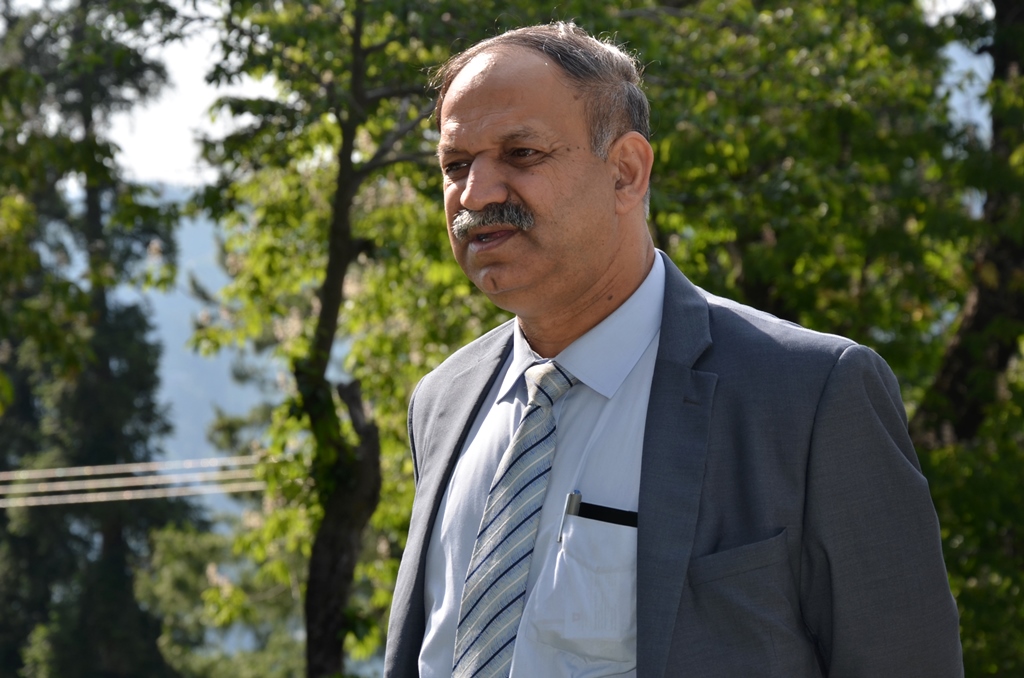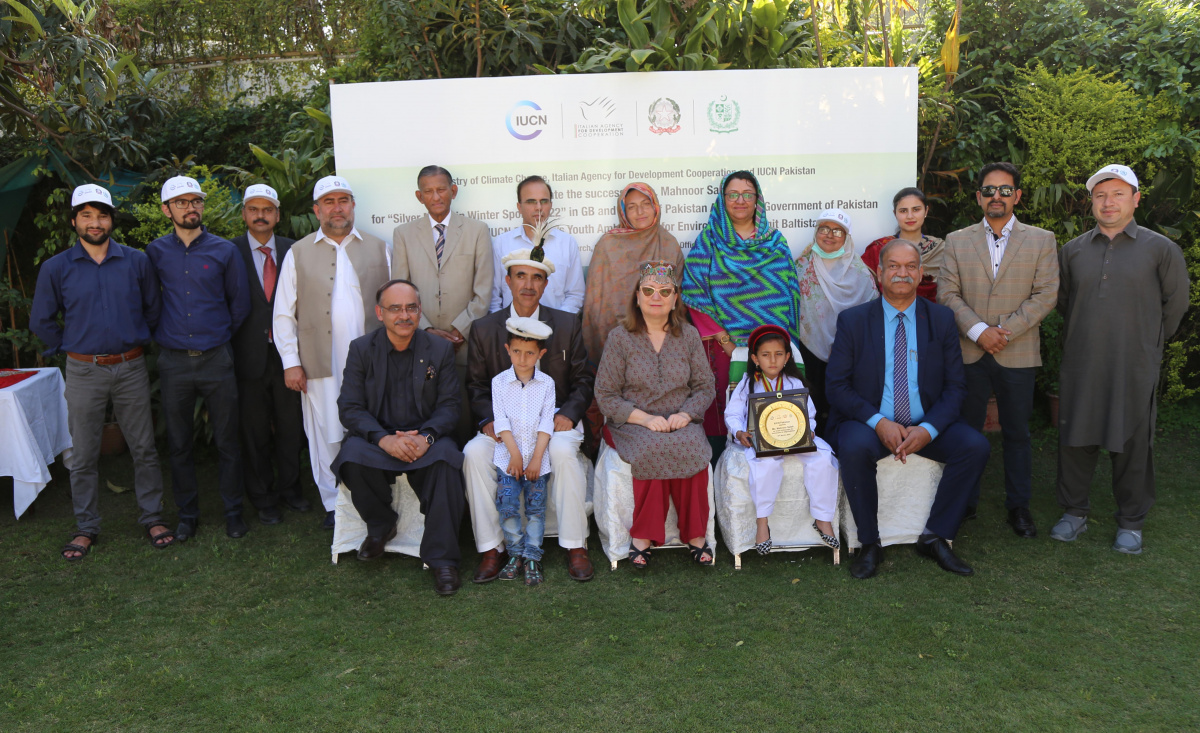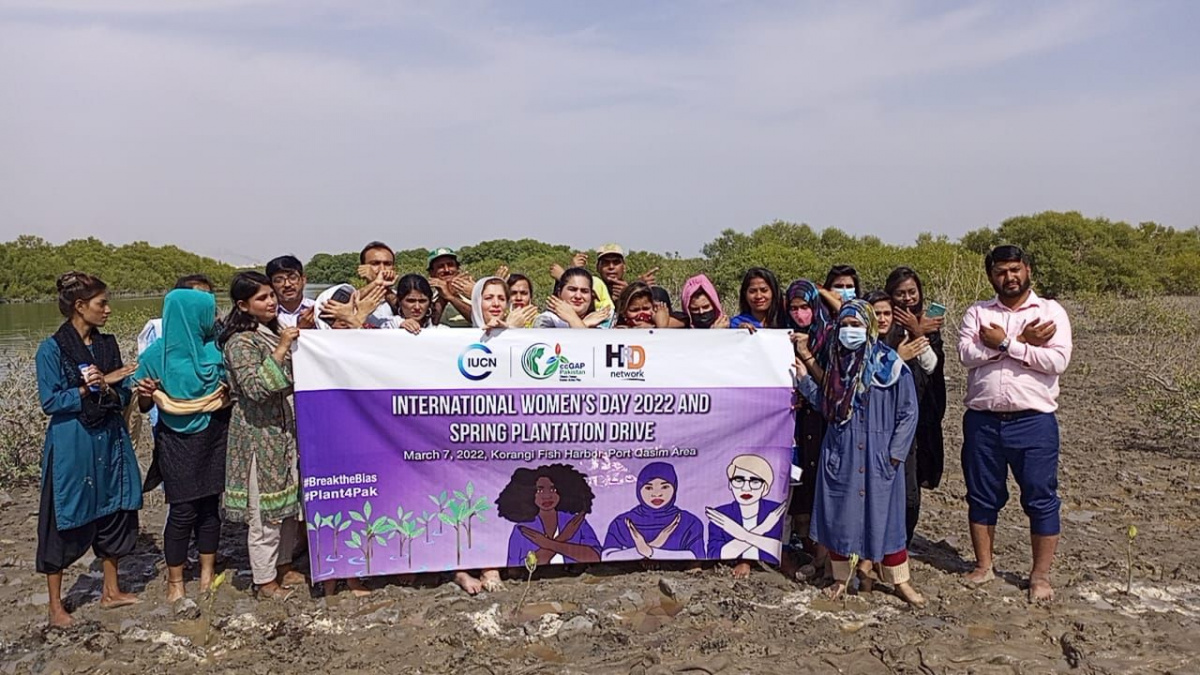16th Meeting of MFF National Coordinating Body Held - Members propose declaring Churna Island as Pakistan’s first-ever Marine Protected Area
The 16th Meeting of the National Coordinating Body (NCB) of the Mangroves for the Future Programme (MFF) Pakistan was organized on October 03, 2016 at the Pakistan Naval Academy at Commandant PNA Rahbar, Manora, Karachi.
|
The meeting was Chaired by Syed Abu Ahmad Akif, Federal Secretary, Ministry of Climate Change. In his welcome remarks, Commandant Rahbar, Adnan Ahmed, Pakistan Navy welcomed the participants and thanked IUCN Pakistan and Mangroves for the Future Programme for organizing the National Coordinating Body. He added that Pakistan Navy has planted 1.2 million saplings of mangroves since the beginning of the campaign in 2016. In the opening remarks Syed Abu Ahmad Akif said that plans were afoot towards conservation of marine resources and that as part of that a speedy process should be adopted to ensure that the Churna Island, as also proposed at IUCN’s World Conservation Congress in Hawaii, be declared a marine protected area. In this regard, a presentation was made by WWF Pakistan highlighting the significance of the Churna Island. Syed Mahmood Nasir updated on the decisions and the actions taken at the previous NCB meeting and facilitated the discussion towards inclusion of sub-committee for tasks being identified at the NCB meetings. Mr. Ghulam Qadir Shah, National Coordinator, Mangroves for the Future Programme Pakistan shared the achievements of the Small Grants and Medium Grants Projects with the participants, and described some of the ongoing initiatives underway at the MFF. In the concluding remarks Mr. Mahmood Akhtar Cheema said that IUCN through its MFF programme had entered into a strategic partnership with the Pakistan Navy and the plantation of mangroves along Sindh and Balochistan coasts was where IUCN was ready to provide all kinds of facilitation. The participants also visited the Biological Wastewater Treatment Plant constructed by Pakistan Navy under the MFF funded medium project. The Pakistan Representative also briefed the participants on the Wastewater Treatment Plant. The Coordinating Body of the Mangroves for the Future Programme Pakistan also unanimously agreed and proposed Charna Island and Miani Hor to be declared as Marine Protected Areas.
For more information or to set up interviews, please contact: Mr. George Sadiq, Programme Officer, Education Communication and Outreach Cell: 0303-333-2127, email: george.sadiq@iucn.org; |
The Mangroves for the Future (MFF) programme is a regional initiative operating in eight countries including India, Indonesia, Maldives, Pakistan, Seychelles, Sri Lanka, Thailand and Vietnam. MFF aims to strengthen the environmental sustainability of coastal development, and to promote the investment in coastal ecosystem management. In 2011, under the MFF programme, nine organisations were awarded small grants to work on several unique projects in Sindh and Balochistan.
Mangroves for the Future (MFF) is a unique partner-led initiative to promote investment in coastal ecosystem conservation. In December 2006 President Bill Clinton planted the first mangrove tree to launch the MFF initiative at a fishing village on Phuket Island, Thailand. At the launch of the Tsunami Legacy Report (2009) in the United Nations in New York In April 2009, Bill Clinton said that MFF has been one of the most positive and forward-looking developments since the tsunami. MFF provides a collaborative platform among the many different agencies, sectors and countries who are addressing challenges to coastal ecosystem and livelihood issues, to work towards a common goal. It initially focused on the countries worst-affected by the tsunami; India, Indonesia, Maldives, Seychelles, Sri Lanka, and Thailand. MFF has recently expanded to include Pakistan and Viet Nam.






